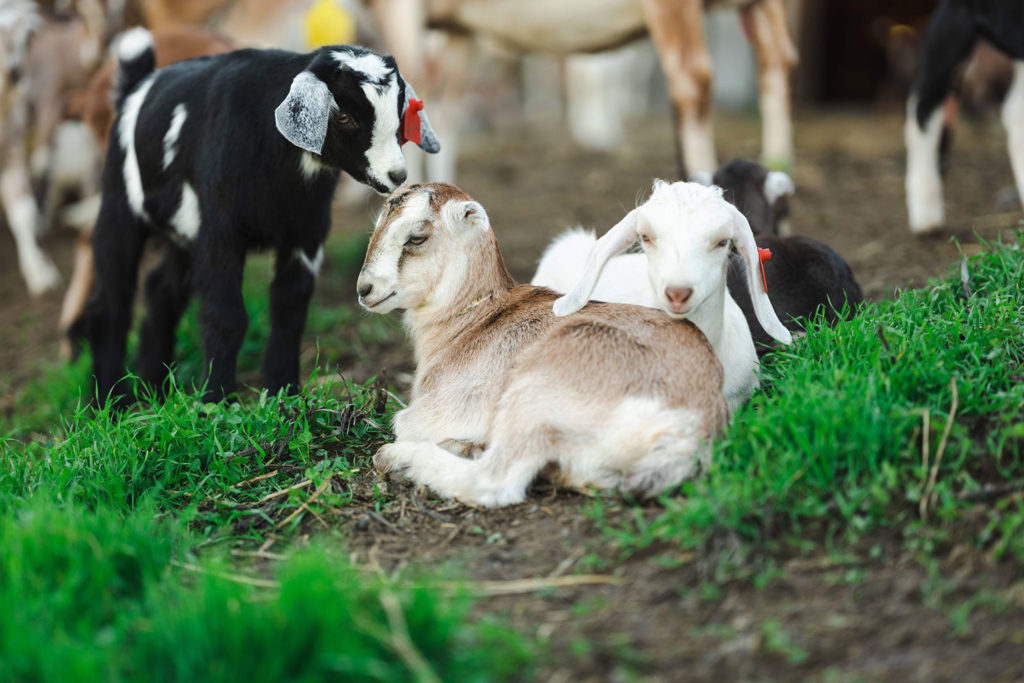Sustainable Food Is Better for Animals

Raising animals in crowded, enclosed spaces—a standard practice in America today—is seen as efficient and profitable, but these facilities often have unsanitary conditions that are inhumane for the animals.
For example, sows (female pigs) are confined in tiny gestation crates, and laying hens are debeaked and kept in battery cages. These enclosures are barely large enough for the animals’ bodies; they are never able to move about or spread their wings. Cows are fed corn-based diets that are not ideal for their digestive systems and that keep them in poor health. Animals are also given a constant regimen of growth hormones and antibiotics.
Sustainable ranches create conditions that are much closer to the way cows, pigs and chickens might live in nature. Animals have access to the outdoors and are raised on open pasture for as much time as possible, where they can forage, run and wallow in mud. Even slaughter can be done in ways that reduce stress and create a respectful environment right up to the end of the animal’s life.
A few examples:
- The goats at farms present at the Ferry Plaza Farmers market are never given hormones to increase milk production. They are also only treated with antiobiotics when their lives are in danger.
- Mountain Ranch Organically Grown raises 500-800 at a time on their 60-acre ranch. The average American chicken farm raises 168,000 hens at once.
- Massa Organics raises ducks in their rice fields, where they swim around and eat bugs. Most duck farms raise the birds indoors.
- Stemple Creek Ranch rotates their grazing herds of cattle so that they are on fresh pasture every couple of days. The animals are 100% grass-fed; their diets are never supplemented with corn or grain.
